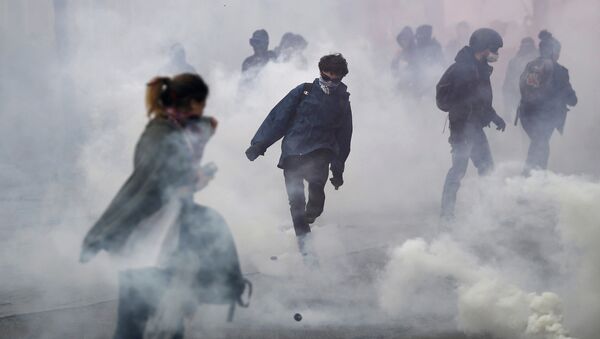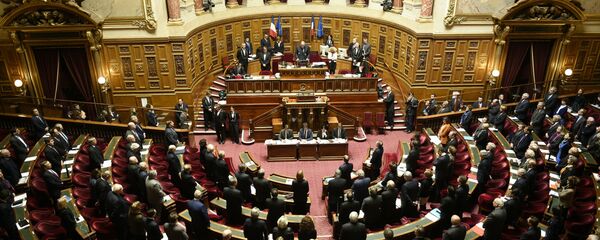There have been rolling strikes for two months, affecting fuel refineries, fuel depots, the French railway, garbage collections, public services and educational establishments. They have been organized by the seven main unions: the Confédération générale du travail (CGT), Force Ouvrière (FO), Fédération Syndicale Unitaire (FSU), Solidaires Unitaires Démocratiques (SUD) and the student unions, Union Nationale des Etudiants de France (UNEF), L'Union nationale lycéenne (UNL) and La Fédération indépendante et démocratique lycéenne (FIDL).
They are hoping to stage a mass march through Paris June 23 to bolster support for the campaign to have the labor reforms overturned, despite the loss of public support. However, the authorities have threatened to ban the march if the unions refuse to stage a static protest in one place. The unions say they will defy the order and march through Paris.
Hollande's Unpopularity
This will be a major showdown for Hollande, who is already suffering the ignominy of being the most unpopular president in a generation. Meanwhile, he will have to compete for his party's nomination in the 2017 presidential election, after his Socialist Party will hold primary elections early next year, marking the first time in more than 50 years that a sitting French president is forced to vie for his party's nomination.
The labor reforms would give employers more scope to lay-off workers, cut costs and allow some employees to work far longer than the current — and much cherished — maximum 35-hour week. Other reforms include a cap on severance pay for workers dismissed by a company. The current uncertain cost of laying-off workers mean that companies are risk-averse to doing so, leaving them less flexible and — in some cases — less productive. Opponents say the reforms would undermine workers' rights on pay, overtime and breaks.
For the first time, a sitting French President will have to face an open primary election. Good bye #Hollande? https://t.co/vRq2l7PINm
— Mathieu von Rohr (@mathieuvonrohr) 19 June 2016
The reforms were narrowly agreed in France's lower house of parliament but were set to be thrown out by its upper house which is dominated by the Republicans. However, Hollande's government invoked the little-used Article 49.3 of the constitution to bypass parliament and enact the reforms, sparking two weeks of strikes that have seen the French transport system brought to its knees and oil refineries blockaded, causing fuel shortages across the nation.




